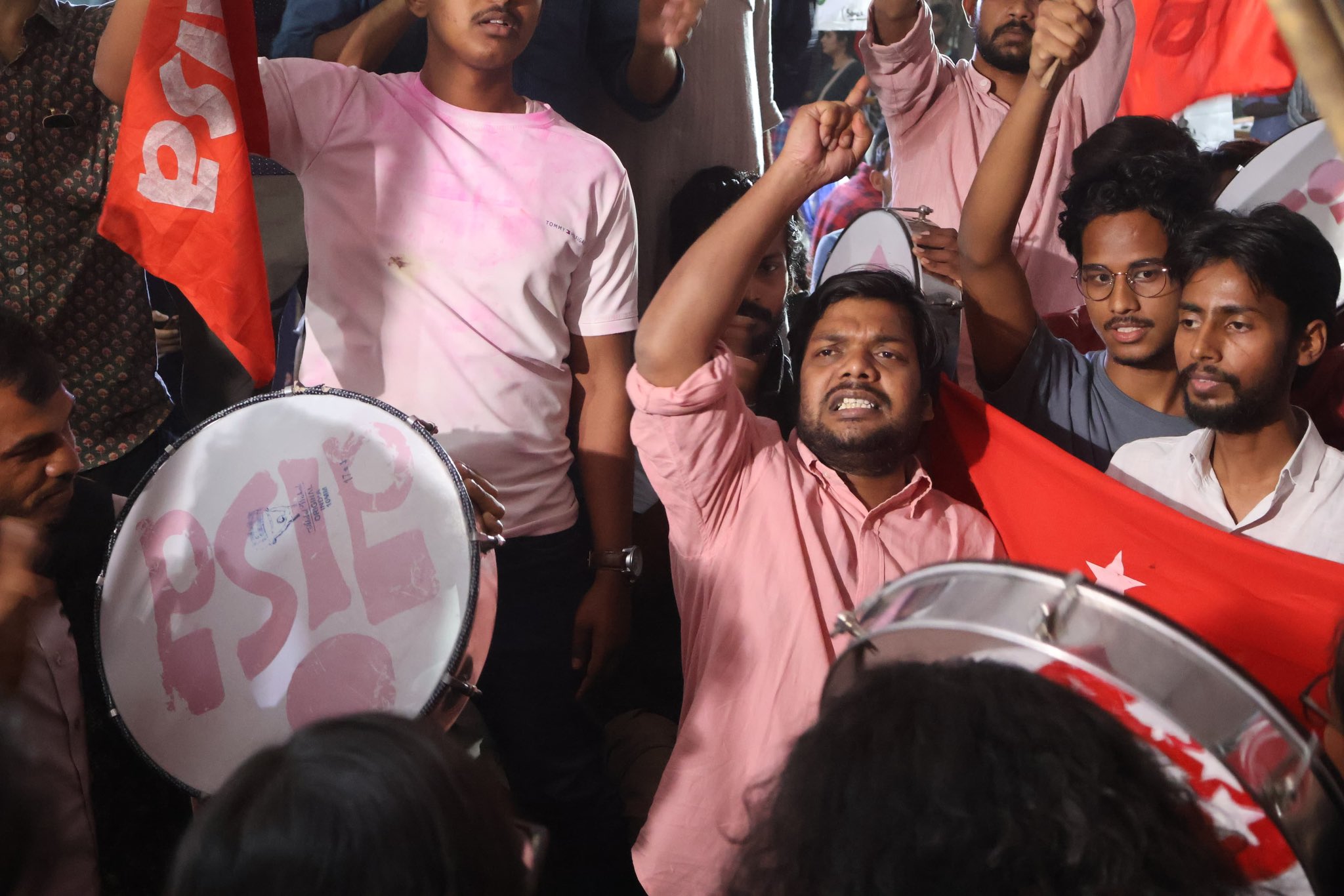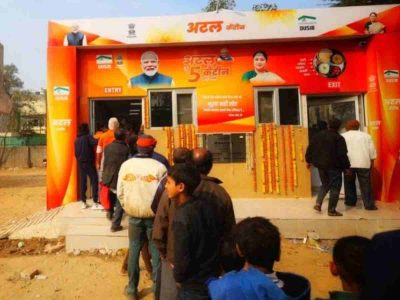Fighting against fund cuts, making university inclusive and ensuring safety of women will be priorities for Dhananjay BH, the newly-elected President of the Jawaharlal Nehru University Students Union (JNUSU).
Dhananjay, of the All India Students’ Association (AISA), secured 2,598 votes to win the top post against Akhil Bharatiya Vidyarthi Parishad’s (ABVP) Umesh C Ajmeera (1,676) in the March 24 election, which was won decisively by the United Left panel.
“Yes! There are many challenges. JNUSU has raised its voice during every regime, especially for education, since we are among the top universities. Students come here from every part of the country. We struggle to reach here,” said Dhananjay.
“But this government wants to suppress our voice. They are attacking on a policy-level through a huge cut in funds. Funding for Baba Saheb Ambedkar Library has been reduced by 80%. Films are being made to malign us. But students have given us a huge mandate, so we will strictly fight on these issues,” added Dhananjay.
Avijit Ghosh from the Students’ Federation of India (SFI) won the vice-president’s post with 2,409 votes against Deepika Sharma of ABVP (1,482). Priyanshi Arya of Birsa Ambedkar Phule Students’ Association (BAPSA) won the general secretary’s post by defeating ABVP’s Arjun Anand (926) while All India Students Federation (AISF )’s Mohammad Sajid won the joint secretary’s post by defeating ABVP’s Govind Dangi (508).
The United Left panel comprised AISA, Democratic Students’ Federation (DSF), Students’ Federation of India (SFI) and the All India Students’ Federation (AISF).
Dhananjay added that the elected panel wants to send out a message of unity and ensure that people from all backgrounds can come and study here.
“We need to make the university inclusive, so that everyone can come here and study. We need to send out a message of unity from here. The situation of the hostel is very miserable, so infrastructure is an issue especially for the new engineering students, who pay huge fees but don’t get good buildings. Apart from this, sexual harassment is rising in the campus, and fellowships have also not been increased for a long time despite inflation. So we will fight a big battle for it.”
The new body will make a ‘charter of demands’ in the council meeting. It hopes to ascertain demand in every centre, hostel and school inside the campus through the charter.
“We will submit these demands to the Vice-Chancellor. That will start our process, and if they will not fulfill our demands, then we will look for other ways such as mobilising students to fight. See, even today we were not allowed in the decision-making body meeting, which was a very important meeting. So, they have started creating hurdles from the first day.”
Dhananjay held out a note of optimism for the students, who elected them to power.
“I want to convince the students that JNU has a legacy and its own history. There are a lot of challenges ahead, but as students believed in us (in the election), so with their support nothing is impossible and we will fight for all the issues and try to solve them. This win gives hope to people of the whole country that everything is possible.”
Sajid, a researcher in Persian language & literature, said, “We fight on the basic campus issues such as violence by the right-wing groups. JNU is one of the top universities but the condition of its roads and labs is miserable. Some students have been injured in the hostel due to falling plaster. Also a scholarship called MCM (Merit Cum Means), and grants to UG, PG students have not been increased in the last 11 years. The average mess fee, on the other hand, has increased from 1500 to around 4000 rupees monthly. Besides, non-NET fellowship, which is Rs 5000 monthly, was also part of our manifesto.”
Sajid, who hails from Uttar Pradesh’s Mau, said further, “Science school labs are in very miserable condition. Students wrote a letter to the authority regarding the lack of equipment. Also, women’s safety is a big concern since they are not providing proper security to women students. Our plan is to raise the matter to the authority and demand rollback GSCASH (gender sensitisation committee).”
He also complained that there are efforts to undermine the unity of JNU and destroy its composite culture.
“Also, JNU is known for its culture of ‘dhaba debates’ and other such activities. However, some people are trying to destroy this and want to divide students on the basis of hostels and centres. In the latest JNU academic council meeting, we weren’t even invited even though a student representative should have been present. When we got there, they did not allow us to meet the registrar. So we will fight for it. We fought on these matters and students elected us. So we will try to keep the trust. We, along with the students concerned, will submit our proposal of demands to the administration and will fight to get them implemented,” he said.





